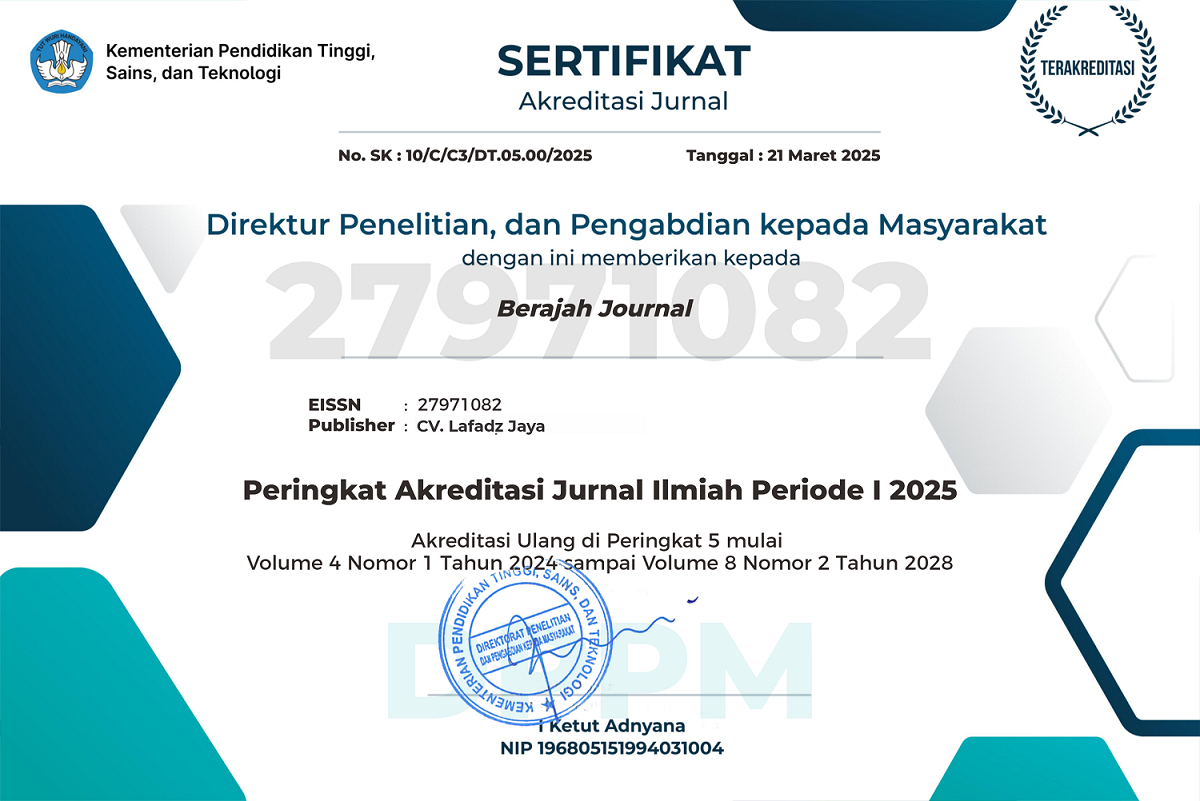TEACHING ENGLISH FOR ISLAMIC BUSINESS MANAGEMENT PROGRAMS: ENHANCING LANGUAGE SKILLS FOR FUTURE LEADERS
DOI:
https://doi.org/10.47353/bj.v4i5.425Keywords:
English teaching, Islamic Business Management, language skills, curriculum development, business communicationAbstract
The teaching of English in Islamic Business Management programs plays a vital role in preparing students for the global marketplace. As English becomes increasingly important in business communication, the need for effective language instruction tailored to the specific context of Islamic business practices is essential. This paper explores the methodologies and approaches to teaching English to students in Islamic Business Management programs. It highlights the significance of integrating business terminology, Islamic principles, and communication skills into the curriculum. Through qualitative research, including interviews with educators and observations of classroom practices, the study identifies effective strategies for enhancing students' English proficiency while ensuring alignment with Islamic business ethics. The findings indicate that contextualized learning, interactive activities, and the use of authentic materials significantly improve students' language skills and their understanding of business concepts. Challenges such as limited resources and varying levels of student proficiency are discussed, along with recommendations for future curriculum development. Ultimately, this study emphasizes the importance of a comprehensive English language program that equips students with the necessary skills to excel in the field of Islamic business.
Downloads
References
Dudley-Evans, T., & St. John, M. (1998). Developments in English for Specific Purposes: A Multi-Disciplinary Approach. Cambridge University Press.
Fatmawati, E. (2020). "The Role of Technology in Enhancing Bahasa Indonesia Learning: A Review." Journal of Language and Technology, 7(1), 33-46.
Hutchinson, T., & Waters, A. (1987). English for Specific Purposes: A Learning-Centred Approach. Cambridge University Press.
Hyland, K. (2006). English for Academic Purposes: An Advanced Resource Book. Routledge.
Krashen, S. D. (1982). Principles and Practice in Second Language Acquisition. Pergamon Press.
Mustika, L. (2021). "The Role of English in Islamic Business Management Education." Journal of Language Teaching and Research, 12(2), 110-120.
Noor, S., & Azzah, N. (2020). "Innovative Strategies for Teaching English in Islamic Business Programs." International Journal of Islamic Business and Management, 5(1), 45-60.
Paltridge, B., & Starfield, S. (2013). The Handbook of English for Specific Purposes. Wiley-Blackwell.
Richards, J. C. (2001). Curriculum Development in Language Teaching. Cambridge University Press.
Rina, L. (2022). "Innovative Approaches to Language Teaching: Lessons from Indonesia." Journal of Education and Teaching, 15(1), 22-36.
Sari, M. (2022). "The Effectiveness of Using Digital Tools in Bahasa Indonesia Teaching: A Comparative Study." Asian EFL Journal, 24(1), 64-79.
Santosa, H. (2020). "Technology-Enhanced Learning in Indonesian Language Education: Opportunities and Challenges." Journal of Educational Technology Development and Exchange, 13(1), 45-58.
Setiawan, I. (2019). "Implementing Project-Based Learning in Bahasa Indonesia Education: Challenges and Benefits." Indonesian Journal of Educational Research and Development, 2(4), 66-80.
Sudrajat, A. (2020). "Exploring the Integration of Technology in Language Teaching: An Indonesian Perspective." International Journal of Learning and Teaching, 8(3), 142-158.
Sweller, J. (1988). "Cognitive Load During Problem Solving: Effects on Learning." Cognitive Science, 12(2), 257-285.
Vygotsky, L. S. (1978). Mind in Society: The Development of Higher Psychological Processes. Harvard University Press.
Downloads
Published
How to Cite
Issue
Section
License
Copyright (c) 2024 Ringgi Candraning Prawerti

This work is licensed under a Creative Commons Attribution 4.0 International License.






















